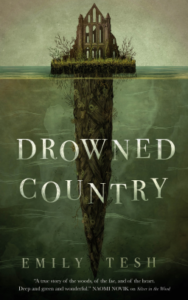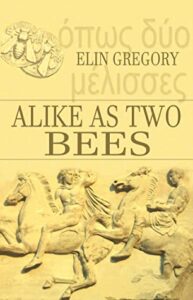 Drowned Country, Emily Tesh
Drowned Country, Emily Tesh
Received to review via Netgalley; publication date 18th August 2020
Drowned Country is a follow-up to Silver in the Wood. Tobias Finch has left the wood, leaving Silver behind to… well, mostly mope, actually. It’s a bed of his own making and he has to lie in it: it’s slowly revealed that he managed to drive Tobias away, despite the deep affection between them. But he has a chance to make things right: Silver’s mother returns to the wood to get him, in order to help with a particular case of supernatural shenanigans she and Tobias are dealing with. There’s a vampire roaming around, a young girl is missing, and they require Silver’s particular talents.
It’s a little disorientating to start where we do, but it makes sense: it allows a slow unfolding of how exactly Silver could mess it up so badly. We’re also in Silver’s point of view now, and get to see Tobias from the outside; that’s rather enjoyable, and the close-third POV is livelier and a little more human in outlook than the close-third to Tobias from the previous book. It gives everything a little more depth, and a different colour; the light has changed in the forest, though the trees are all the same.
It’s not a simple adventure, and the relationship between Tobias and Silver isn’t the sole driver of the plot. Instead, we get a little glimpse of other things deep and strange.
And of course, you still have to love Silver’s mother.
The two novellas are very easy reading, and beautifully written. Very worth it!









